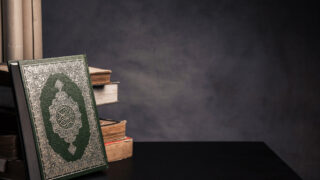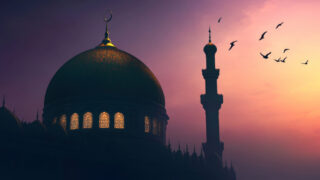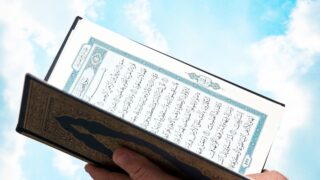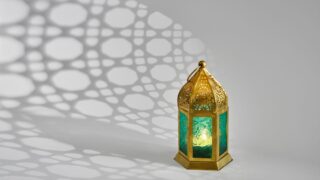This article seeks to outline the revelation in the Qur’an on thankfulness, and discusses its various attributes. The writer also proceeds to answer the question as to how the believer can become more grateful/ thankful and implement this in their personal lives.
The Qur’an contains 27 verses (Ayats) on thankfulness. At times Allah commands us to be thankful and at times Allah warns of not being thankful. There are 9 ayats that warn us of the negative consequences of not being thankful. These include;
“And certainly, we have established you in the earth and made it a means of livelihood for you, little it is that you give thanks.” 7.10
Here Allah is addressing both the Muslim believer but mostly he is addressing non-believers and Kaffirs who do not appreciate Allah as their lord, who provides them with all types of livelihoods. We must bear in mind that when the Qur’an was revealed it used to warn men of the consequences of disbelief. Another prime example is that of;
“Say he it is who brought you into being and made for you the ears and the eyes and the hearts; little it is that you give thanks.”
This is an exhortation to the believers and to the Prophet to say to nonbelievers that Allah is the one who granted you existence for which you should give thanks. The first example is that a revelation of the condition of mankind and the disbelievers even today which do not attribute blessings from above or existence to Allah the creator of humankind. The second example is also on the same vein, but it serves more as a preaching example to the disbelievers for denying Al Khaliques creative abilities.
Similarly, ayats, 7.10, 10.60, 12.38, 23.78, 32.9, 34.13, 40.61, 56.70 and finally ayat 67.23, are all worded in such a way that they contain the same meaning that mankind does not give thanks for blessings, provisions, creation, signs such as night and day, the sea and its provision and various other blessings that are enumerated from Allah, that mankind is ungrateful for.
This leaves 16 ayats that relate to thankfulness towards Allah. They all command the giving of thanks for various reasons in various ways. Here I will briefly discuss each one.
“Then we pardoned you after that that you may give thanks.” Ayat 2.52
“Then we raised you up after your death that you may give thanks.” Ayat 2.56
Both these ayats have been discussed in Tafsir of the Qur’an, regarding the Bani Israel. They became ungrateful for the favours Allah showered blessings upon them delivering them from the people of Pharaoh, who persecuted them in Egypt. In the first instance they took to worshipping a cow when their Prophet Musa was receiving revelation from Allah, and had gone away to Mount Tur, and the second ayat refers to when Musa was contested as to the authenticity of the Torah. He took seventy men and purified then then took them to mount Tur, whereby Allah confirmed with then the divine origin of Musa’s book. However, they still did not believe, and said to Musa they would only believe if they could see Allah himself. For their insolence Allah killed then with a lightning bolt. Musa became concerned that the Bani Israel would accuse him of killing the leaders, so h prayed to Allah to bring them back to life. Allah revived them and made it clear that they should be grateful. Two arguments appear here, Allah does not like insolence, and he does not like shirk, or worship of others such as cows. The Bani Israel were punished for both.
“O you who believe! eat of the good things we have provided you with and give thanks to Allah if it is him that you serve. “Ayat 2.172
Here in this ayat commands that lawful and pure things must be eaten, as does the verses found in Surat An Nahl, at 16.114
Gratitude needs to be shown if it is him that you worship. Thus, obedience in worship is testimony that you are serving Allah. Showing gratitude demands that one worships and obeys Allah only and does not use his bounties for committing sins. Also, here Allah reiterates that he is the provider of all halal sustenance through the example of food. There are specific duas for praising Allah and showing gratitude on before and after eating food, in the Sunnah, which a true believer follows.
“The month of Ramadan is that in which the Qur’an was revealed a guidance to men and clear proofs of guidance and the distinction; therefore whoever of you is present in this month, he shall fast therein, and whoever is sick or on a journey, then he shall fast a like number of other days, Allah desires ease for you, and he does not desire you difficulty, and he desires that you should complete the number, and that you should exalt the greatness of Allah for his having guided you and that you may give thanks.” Ayat 2.185
Here Allah is making clear that the month of Ramadan is a month in which to show thanks to Allah by pursuing devout worship in the form of fasts. In fact the 5 pillars of Islam demonstrate that the believer is giving thanks to Allah. Exalting the greatness of Allah such as through Tarabbiyya prayer during Ramadan, an additional prayer is a result of guidance and that the reaction to this is to give thanks. People prepare food dishes to open the fast and this is also a form of thanks for the food is provided by Allah alone.
“And Allah did certainly assist you at Badr when you were weak; be careful of your duty to Allah then, that you may give thanks.” Ayat 3.123
Here Allah is showing the sign of the angels at Badr which resulted in sure victory for he Muslims. It is only Allah that can provide signs and assistance to testify to this Tawhid, or oneness and omnipotence. So, he reminds believers to be careful of their duty to Allah. A duty to Allah is to worship him alone, accept the five pillars of Islam and obey them and to accept other aspects of Islam such as belief in the last day, resurrection, heaven and the unseen. However, it is sufficient if one performs his duty to Allah to be regarded as being of the grateful ones, and such an ayat is an encouragement to obedience. It is also referring to wartime when Allah can choose to strengthen the Muslim community against their oppressors, and the brotherhood of Islam is to unite in condemnation of these vile acts, such as the treatment of Muslims in China.
“And as for the good land, its vegetation springs forth abundantly buy the permission of its Lord, and as for that which is inferior, its herbage comes forth, but sparingly, thus do we repeat the communications for a people who give thanks. “Ayat 7.58
Here the ayat indicates that this and ayat 34.15 are referring to the People and communities which Allah blessed with produce an Prophethood. However, despite their riches they disobeyed their messengers and rejected Allah as their Lord. In response the people of Saba were totally destroyed as were other townships that Allah had blessed. The important thing to note is that Allah only destroys people who are extremely ungrateful and refuse to show even the slightest gratitude towards Allah.
“And remember when you were few, deemed weak in the land, fearing lest people may carry you off by force, but he sheltered you and strengthened you with his aid and gave you of the good things that you may give thanks.” Ayat 8.26
Here Allah is referring to the development of Islam, where they were persecuted but Allah came to provide aid and shelter to them. He gave them the good things that they may give thanks. How is it that we can see today the immense halal wealth of Mecca and Medica as a consequence of the historical development of Islam. Here Allah reminds us to be grateful for the ease under which we can perform Hajj and Umrah, in order to give thanks to Allah.
“And he it is who has made the sea subservient to you that you may eat fresh flesh from it and bring forth its ornaments which you were, and you see the ships cleaving through it, and that you might seek of his bounty and that you may give thanks.” Ayat 16.14
Allah has sent signs in the destruction of the people of Nuh As Sallam of the power of water, which should be used for halal blessed and bountiful purposes. The bounty of fish and pearls as ornament and food that we beautify ourselves with and feed upon is a sign that we should contemplate as being form Allah. Then we should express our gratitude for these examples of multifarious bounties Allah has brought about and put at our disposal. Allah commands gratitude towards these bounties.
“And Allah has brough you forth from the wombs of his mother’s you did not know anything, and he gave you hearing and sight and hearts that you may give thanks.”16.78
The tafsir indicates that this ayat refers to the proof end evidence of Tawhid, that is the oneness of Allah, and the dislike of shirk. Thus, he commands us to give thanks for the faculties of intelligence, feeling and senses as well as the multifarious spiritual gifts Allah has placed at mankind’s disposal.
“Therefore, eat of what Allah has given you, lawful and good things, and give thanks for Allah’s favour if him do you serve. “Ayat 16.114
This was mentioned earlier at point number 2.172 above. Is a point of gratefulness to utilise lawful and good things. Here only Allah can determine what is lawful and what is forbidden, that is haram, a point we must be aware of.
“And out of his mercy he has made for you the night and the day, that you may rest therein, and that you may seek of his grace, and that you may give thanks.” Ayat 23.78
Again, this is one of the signs of Allah and a demonstration of Tawhid, the oneness of Allah. Only a supreme being such as Allah could have created the night and day, and if a human uses his intellect and contemplates this by studying the Qur’an his natural inclination would be to wish to obey Allah and obtain his mercy and bounty and recognise his signs of creation such as this one.
“Certainly, there was a sign for Saba in their abode; two gardens on the right and the left, eat of the sustenance of your Lord and give thanks to him; a good land and a Forgiving Lord.! “Ayat 34.15
Here again the ayat is referring to the people of Saba, who were blessed and then destroyed for their ingratitude. It is a point to not that the prophethood of Muhammad pbuh, he was asked if he wished to destroy his opponents with a severe punishment but it was in his mercy that he rejected destruction such as the people of Nuh suffered from but wished the offspring of the people to be blessed with Islam, and Allah granted his request, as they would become more grateful over time, and more preaching needed to occur, and more jihad.
“Allah is he who made subservient to you the sea that ships may run therein by his command, and that you may seek of his grace, and that you may give thanks. “Ayat 45.12
Here Allah is conforming what went before that the ships only sail by virtue of his command, If he wished he could cause a storm at sea but it is one of the bounties towards mankind that they sea is subservient to him, and we can freely seek provision therein, and this requires us to give thanks for these blessings and be more grateful.
“And we have enjoined on man doing good to his parents. With trouble did his mother bear him, and with trouble did she bring him forth; and the bearing of him and the weaning of him was thirty months; until when he attains his maturity and reaches 40 years he says “My Lord! Grant me that I may give thanks for the thy favour which thou has bestowed upon me and on my parents, and that I may do good that pleases thee and do good to me in respect of my offspring ; surely I turn to thee and surely I am of those who submit. “Ayat 46.15
The age of 40 is here selected because the immaturity of youth and the weakness of old age are not present at this age. Here the adult give thanks for the upbringing that his parents have given him. Inshallah they will have brought him up to be a pious child, as he is turning to Allah in supplication, a devout and pious act in itself. He also wishes for both the means and the ability to favour his own offspring, and again bounties such as Alymah and Alim courses are examples of good that Allah can do to the persons offspring. A deeper meaning here is to change our behaviour towards other people we are grateful to such as our parents, leading a more harmonious life towards them and our own offspring, which we bear a duty to bring up firmly in the folds of Islam.
“A favour from us, thus do we reward him who gives thanks.” Ayat 54.35
Here Allah mentions the safe delivery of Lut As Sallam, and his family from the punishments inflicted on his people for their disobedience. He was saved due to his devoutness towards his Lord. In recognition of this Allah favoured him with Prophethood for having been rightly guided to preach and warn his people of their ingratitude towards Allah for his blessings.
“ We only feed you for Allah’s sake; we desire from you neither reward nor thanks “Ayat 76.9
This refers to the giving of food as Zakat. The ultimate reward is from Allah, and thanks is to be reserved for Allah, rather than mankind.
So, we can see the clear revelation on the giving of thanks. But how do we give thanks? and how do we reach the station of a thankful believer? Here I will discuss these issues.
Making supplication towards Allah for thankfulness. This includes reciting after salah dua’s such as the following;
“O Allah, help me in your remembrance, your thanks, and in perfecting your prescribed worship.”
Following the Qur’anic Ayat’s on thankfulness, as previously discussed above. Following sharia e.g. as related to food. In order to obey the ayat on thankfulness it requires additional action such as 2.172 and 16.114, which require the eating of lawful foods. Thus, some of the Ayat’s require additional action in order to obey them and reap the full reward of being a thankful believer.
Following the hadith on thankfulness. There are several important hadith on thankfulness. An example is;
“The one who eats and is thankful is like the one who fasts and is patient.”
Here we can see that people who perhaps cannot fast due to medical complications such as diabetes are guided to make thankful praise to Allah for the food that they eat.
The prophet’s sharia on thankfulness as applied to individual Prophets, whose example can be followed. e.g., Musa, Ibrahim and Yusuf.
Th example of Musa’s favour when Allah said to him, in ayat 14.7;
“If you are grateful, I will surely increase you in favours.”
However, the Bani Israel were ungrateful and were eventually superseded in faith by the Prophet Muhammad, and the Islamic faith.
A more favourable ayat discusses the favour of Ibrahim where in ayat 16.121 Allah states;
“He showed his gratitude for the favours of Allah, who chose him and guided him to a straight way.”
The example of Yusuf who stated in the Qur’an that;
“And I follow the religion of my father, Ibrahim and Ishaq and Yuqub; it beseems us not that we should associate aught with Allah, this is by Allah’s grace upon us and on mankind, but most people do not give thanks. “
Thus, we can make supplication to follow the sharia of previous Prophets as confirmed by the favour of Muhammad pbuh.
The next topic is to understand the name of the thankful one in Islam. The 35th beautiful name of Allah is the Grateful/the One who accepts Gratitude. Thus, Allah acts in a grateful manner towards us by giving more of his grace and is also the one who accepts our grateful worship such as dua’s and Qur’anic recitation and worship.
At ayat 7.180 Allah states;
“Call upon Allah by his beautiful names.”
Thus, we are to call upon the name Ash Shakuru in appropriate times. Imam Ghazali states;
“Know that thankfulness is from the highest of stations, and it is higher than patience and fear and detachment of the world.”
Reciting the name brings its benefits such as recitation 41 times leads to relief from all suffering, according to hadith. Reciting names can install in us a deeper sense of realisation of Allah’s divine presence.
We grow spiritually in the qualities of one who is grateful for example ayat 46.15, where we become more grateful towards our parents with the aim of becoming a righteous child who obeys the sharia on parenthood. Thus, society benefits with more harmonious relations between various groups. Indeed, Hadith Abu Dawood 4885 states The Prophet said “The one who does not thank people is not thankful to Allah.”
This reiterates the view that thankfulness is to be ingrained in society.
The prophet Muhammad pbuh has indicated in hadith that whoever learns and recites the names of Allah will be admitted to paradise.
The next way of expressing our gratitude is by performing Sujood As-Shukr, the prostration or prayer of gratefulness. This is a two rakat prayer that we perform and then we make dua of gratefulness for whatever has occurred to us e.g., just received high exam results or succeeded in getting a new job. According to hadith, the Prophet Muhammad used to observe this prayer when he was successful in a military battle and when other good things happened to him that pleased him and he was very grateful towards Allah by obeying and establishing this worship.
In conclusion, we can see that we owe a duty to Allah to be thankful towards him and his many blessings. We realise his divine presence, omnipotence, commands of sharia law and its benefits through this worship. It is not only remembrance, but it means to internalise the virtues and beauty emulating from the name of Allah and try to embody it in our actions. Thus, do we develop spiritually in our hearts, minds, body and souls with which we worship Allah. Perhaps the final goal is to reach such a station of praise with Allah as a grateful one as some of his Prophets did and to try to serve him in this way, ensuring success on the day of judgement and in the Akhirah. And Allah knows best.
By Nabela K M Ahmad

















